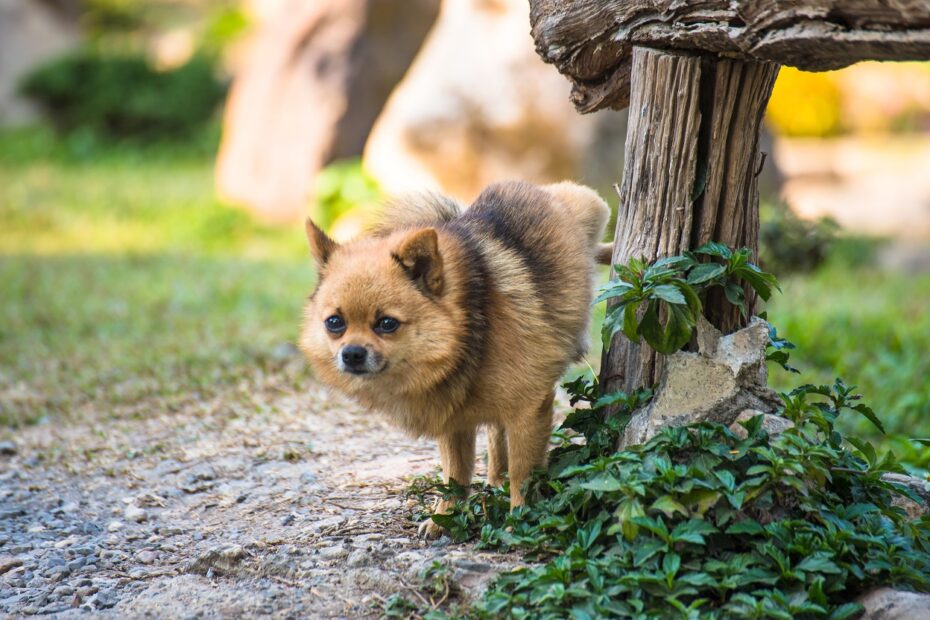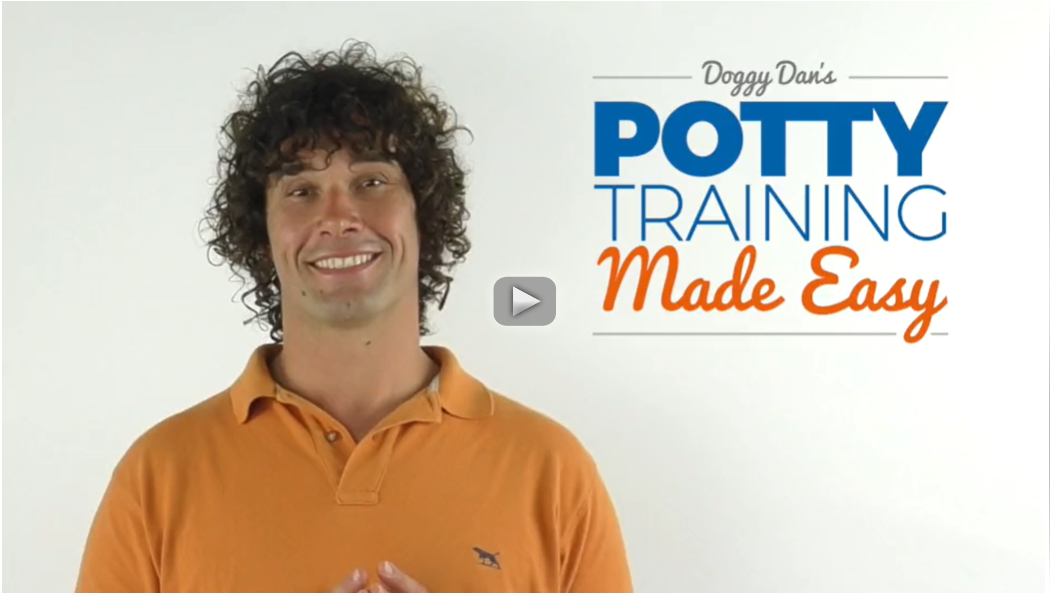A puppy peeing everywhere isn’t uncommon. But that probably doesn’t help you if you’re mopping up your nice clean carpet for the tenth time today.
Potty training is a strange business. Just as you think you’re making progress (your puppy pees on cue in the backyard – whoop whoop!), they suddenly become more inclined than ever to give your carpet a good old showering.
Ultimately, potty training is a process, not an overnight fix. Some new dog owners expect their pups to become housetrained in a tiny amount of time and with the bare minimum of effort.
Newsflash – it ain’t gonna happen.
If your puppy’s peeing everywhere, it’s likely they either haven’t been fully housetrained yet, or they’ve been given too much freedom, too soon.
If you want to control the flood and introduce a bit of sanity to your life, you’re going to have to dial things back a notch and go back to basics.
It’s going to need patience, perseverance, and plenty of effort.
Basically, it’s going to be hard work.
But unless you want to spend the next decade wringing out your bedsheets and scrubbing down your floors, it’s going to be worth it.
Before we start looking at some of the reasons for your pup’s peeing habit, a quick word of advice.
Housetraining, as I’ve mentioned, can be a slow process. If you want to get to the endpoint as soon as your pup’s bladder will allow, getting it right from the very start is key.
If you’re new to housetraining, I’d recommend checking out Potty Training Made Easy by Dan Abdelnoor (see video link below).
The practical, easy-to-follow guide will minimize any rookie mistakes and put both you and your pup on the path to success.
(video will open in a new window)
The Reasons Why Your Puppy Pees Everywhere
Getting inside your pup’s head might seem like extra work, but give it a try.
If you understand what’s making them do what they do, you’re going to find addressing the problem easier.
If you’re starting to get frustrated at their lack of progress, it’s also going to help you understand that they’re really, really not peeing to annoy you.
Some of the possible explanations for your pup’s non-stop peeing include:
They have a health condition
Although a health condition is the least likely explanation for your pup’s behavior, it’s also the one you need to rule out before anything else.
Pups might seem unlikely candidates for urinary tract infections, but they’re by no means immune. Watch your puppy closely next time they pee.
If they squat repeatedly and seem to have trouble maintaining a decent ‘flow,’ take it as a sign that something may be up.
Bloody urine, excessive licking around the genital area, and demanding to be let out frequently are also common symptoms of a UTI.
If you’ve noticed that your pup seems to be drinking constantly, it could be a symptom of diabetes.
If things don’t seem quite right or if you have any concerns at all, play it safe, and get them checked over by a vet.
They aren’t emptying their bladder completely
Pups are excitable, easily distracted, and way too busy thinking about fun and games to concentrate on the task in hand.
Basically, emptying their bladder is boring. They’ll release enough to stave off the discomfort, and then it’s on to the next thing.
This might be fine for them, but for you, it means a pee-break in the garden is swiftly followed by another pee-break in the house.
So next time you’re in the yard, stay out for a few minutes longer than you would normally.
If you notice their first pee is followed by another pee a few minutes later. It’s because they aren’t emptying their bladders completely the first time around.
You’re distracting them
We all know that pups thrive on positive reinforcement and plenty of praise. The problem is, we can sometimes come in with the treats and the hugs a bit too prematurely.
If you start throwing them a pee party too early, you can end up interrupting them mid-flow.
The end result?
They don’t empty their bladder completely while they’re outside, so have to finish off once they’re back in the house.
Related Post: How To Toilet Train A Puppy In 7 Days
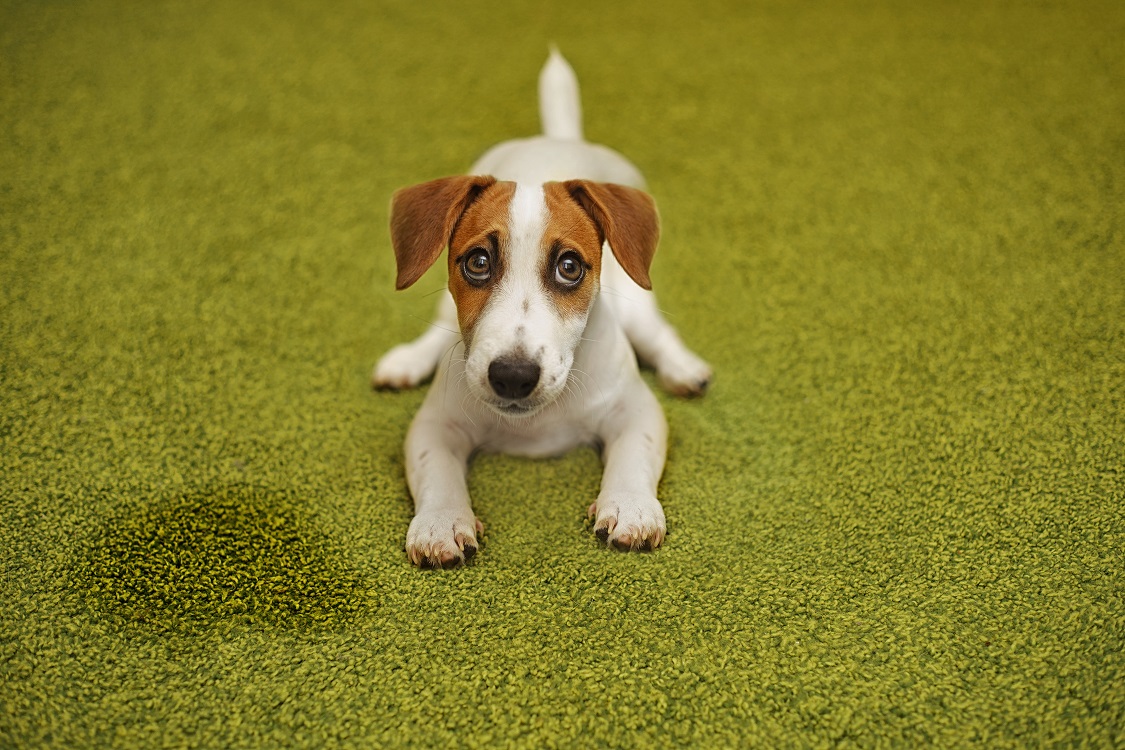
They’ve drunk too much
It’s not rocket science: if a pup drinks more water than their bladders can comfortably hold, then that water will eventually need to come out. And it’s not always going to wait until it’s convenient before it does.
Pups tend to drink the most in the morning after waking up, after play, and after eating.
As it can sometimes take multiple tries for all that water to come out, a single trip to the yard might not cut it.
They haven’t developed bladder control
A puppy simply can’t ‘hold it’ for as long as an adult dog can. They don’t have full control of their bladder yet.
Although it varies by breed (and to some extent by dog), puppies don’t develop full bladder control until at least 4- 6 months of age. Even after then, you can expect some accidents.
At 12 weeks, a pup should be able to get through 6-8hrs at night without needing a potty break. During the day when they’re eating and drinking normally, going even 4 hours can be way too much of a test for their bladders.
They’re excited
If your puppy is still learning how to control their bladder. Anything that excites them (a game, a friend visiting the house, spotting a cat from the window) has the potential to trigger ‘excitement urination.’
They haven’t been properly housetrained
If your puppy is still peeing everywhere after they’ve already been ‘housetrained,’ there’s a good chance the housetraining was completed before the job was done…
…Was started and finished before your pup reached an appropriate age (remember, puppies don’t develop bladder control until they’re about 4-6 months old)…
…Or it just wasn’t effective.
If you haven’t done so already, take a look at this Potty Training Made Easy by Dan Abdelnoor. If you don’t recognize any of the instructions or can’t remember following any of the suggestions. Your pup’s housetraining may have been less hit than miss.
No judgment. Housetraining can be hard, even for experienced dog owners. But now might be the time to revisit the basics and adopt a fresh approach.
They’re frightened
If a dog feels intimidated or scared, they can sometimes lose control of their bladder.
‘Submissive urination’, as it’s referred to, can happen to dogs of all ages and breeds and has nothing to do with being housetrained.
It’s a subconscious response to a situation outside of your pup’s control and will usually be triggered by a specific action that, for whatever reason, results in a fear response.
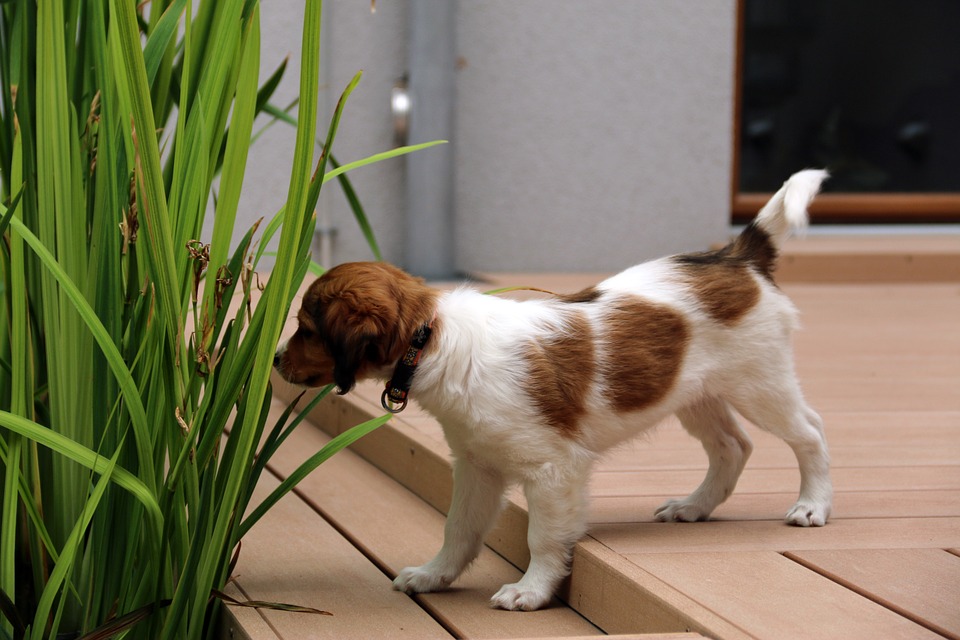
How to Tell When Your Puppy Needs to Go
If you want to avoid any accidents, learning to recognize when your pup needs to pee (and moving like lightning when it happens) is crucial.
Some signs are obvious. If your pup’s barking and scratching at the door, squatting, circling, or sniffing around, grab that leash and GO GO GO.
Other signs are harder to spot but can usually be predicted with a bit of common sense.
Work out when your pup is most likely to drink a bellyful (usually, this will be after they wake up or after a bout of exercise) and time your yard-breaks shortly after.
The more attuned you are to their needs, the less likely you are to miss your opportunity.
Once they finish doing their business in the appropriate spot, always remember to reward them.
The more often they get rewarded for peeing in the right place, the sooner they’ll realize peeing outside is way more profitable than peeing indoors.
How to Stop Your Puppy Peeing Everywhere
As the first step in tackling your pup’s peeing problem, take a moment to check out this step-by-step potty-training course. Even if you think you know the basics of housetraining already, it always pays to get some expert advice.
There might be things you missed, methods you haven’t tried, or angles you’ve forgotten about.
As you progress through the course, take some time to consider some of the following suggestions:
Dial down the excitement
If your pup is prone to excitement urination (i.e. if they pee themselves when they get too excited), work on dialing the excitement down a notch.
When you come home, try to ignore your pup until they’ve calmed down and ask any visitors to do the same.
It’s not going to make you feel great, especially the first few times, but it really will help your dog relax faster and reduce the risk of an accident.
Work with your vet
In the vast majority of cases, a puppy that pees everywhere is perfectly normal, perfectly healthy, and perfectly happy. But when it comes to your pet’s health, it’s always better to be safe than sorry.
If you’ve completed housetraining at the appropriate time and haven’t allowed your pup too much freedom too soon. You need to rule out the chance that a medical condition is to blame for their accidents.
If your vet identifies a urinary tract infection, treatment is usually very quick and very effective. Once the infection clears up, you might need to complete a little refresher potty course to remind your pup of the basics.
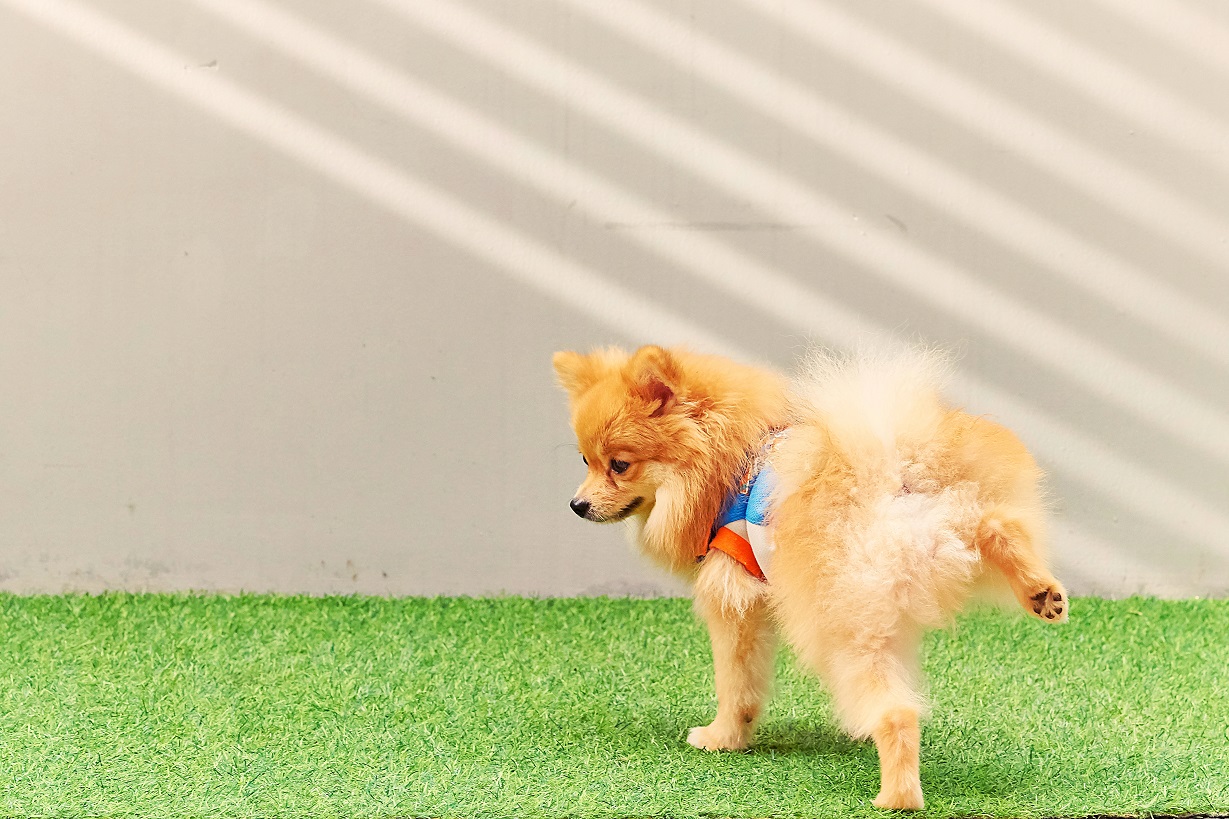
Keep both eyes on the prize
Even if your pup knows that a yard is an appropriate place to pee, they won’t make progress if they think the living room is just as good.
Whenever your pup isn’t in their crate or another safe area, watch them like a hawk. The only way to prevent an accident is to pre-empt it.
As soon as you spot any sign that your pup needs to go out, take them straight away.
Cooking dinner can wait – your pup’s bladder won’t.
Rein in their freedom
If you tell a child that drawing on the living room wall is a bad thing, they’ll be able to contextualize the idea and apply it to the rest of the house.
Your pup won’t.
Even if you teach them that peeing in the living room isn’t appropriate, they won’t necessarily understand that peeing in the bathroom or bedroom is just as bad.
If you want to make your entire house a pee-free zone, you’ll need to teach them how to behave in each and every room.
As you teach your pup good potty behavior in one or two rooms of the house, keep the rest off-limits.
Once they stop having accidents in those rooms, increase their access to other parts of the house and do the same in those rooms.
Set a schedule
Anticipating your puppy’s bathroom needs isn’t rocket science. Like night follows day, peeing will always follow drinking.
Typically, your pup will need to go at the following times:
- When they wake up
- After playing
- After time in their crate
- After a nap
- After eating
- After drinking
Build a potty schedule around these times. Remember to factor in a bedtime bathroom break as well – if your pup’s bladder is empty when they hit the hay, both they (and you!) are more likely to get a decent night’s sleep.
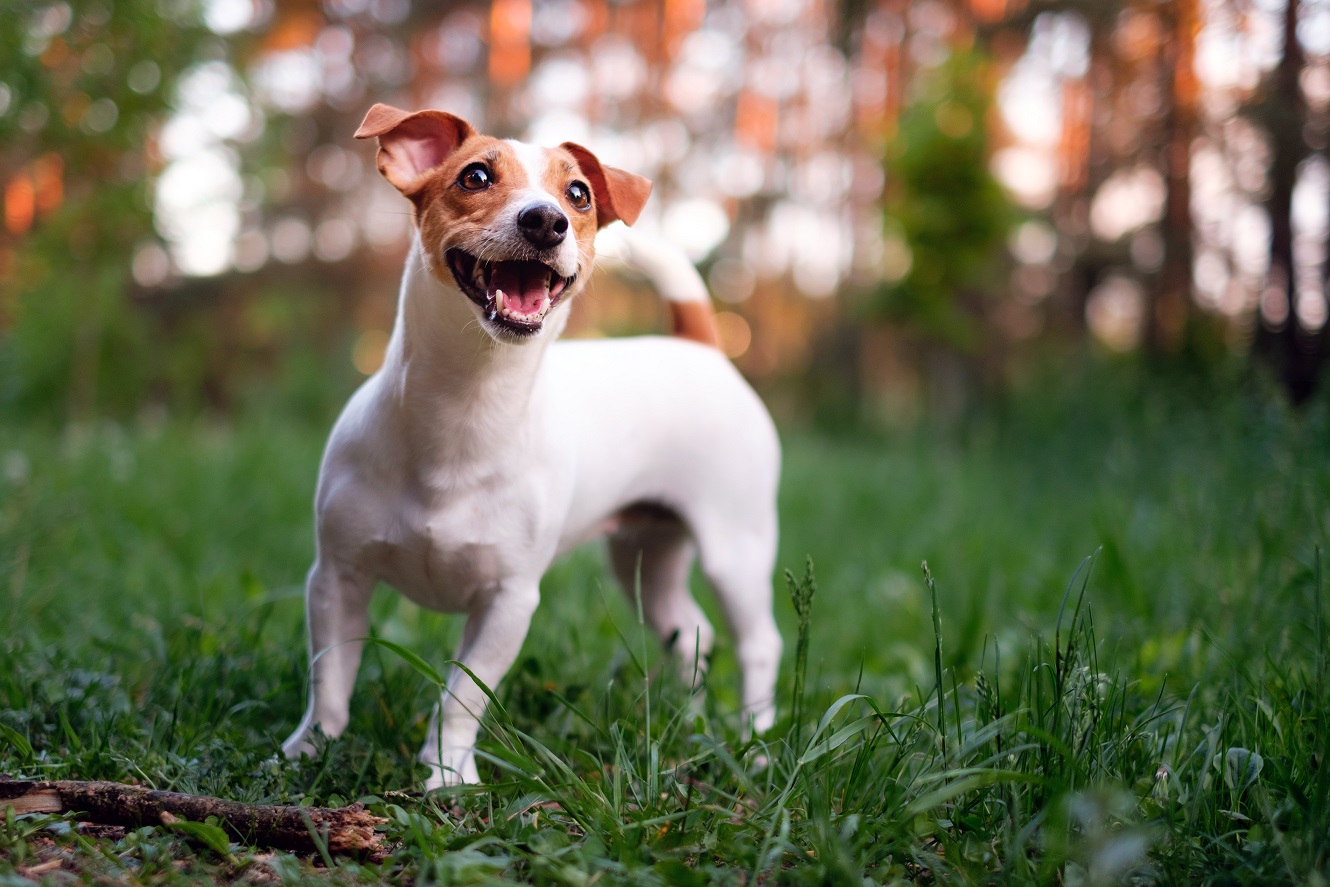
Stick to positive reinforcement
No matter how many times your puppy pees in your living room, your kitchen, or anywhere else in your home, they aren’t doing it to spite you.
And they aren’t going to benefit in any way, shape, or form if you act like they are.
Avoid punishing or yelling at your pup for any accidents – not only will it damage your bond with them. But it even risks exacerbating the problem by making them scared of urinating in front of you, even when they’re outside.
Stick to positive reinforcement. Once your puppy learns that peeing outside gets them some nice praise and some even nicer treats, they’ll be more inclined to save up their pee for the appropriate time.
Closing Thoughts
No one ever said owning a puppy was easy. But no one ever told us it was going to be quite so hard on our carpets, either.
But hey – raising a puppy is a learning curve. No one wants to put up with a stinky mess, but if you’re willing to put in the work, those little messes will become history sooner than you know.
Consistency, understanding, and patience are all crucial to successful housetraining.
Put in your homework, create a plan of action, and then stick to it. There might be setbacks along the way, but don’t give up at the first hurdle.
With perseverance, your puppy will get there.
